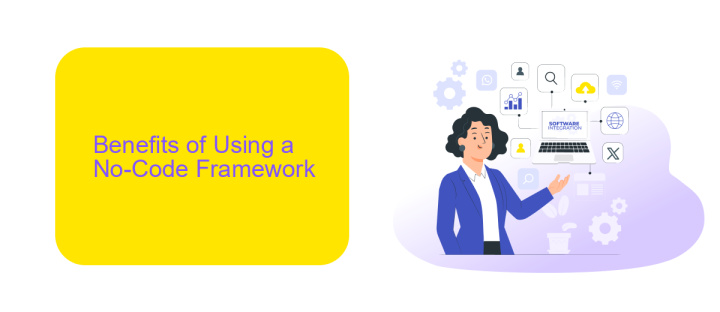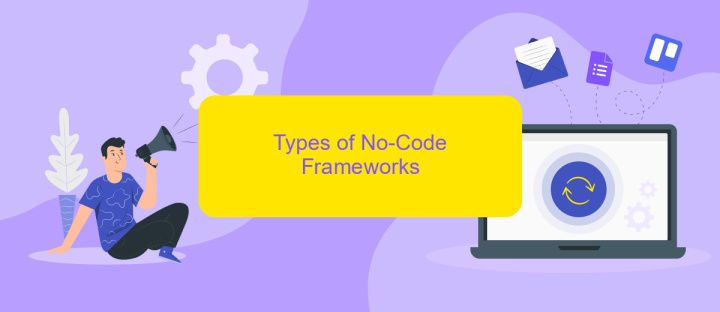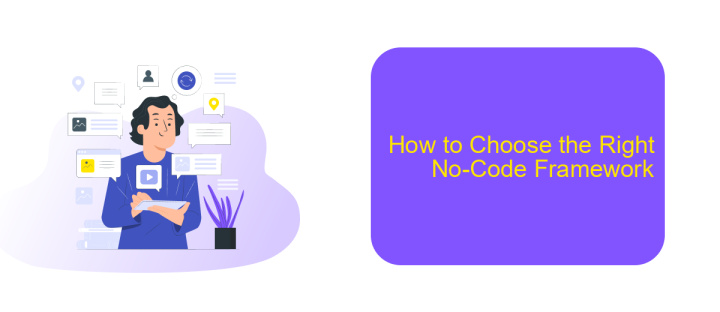No-Code Framework
The rise of no-code frameworks is revolutionizing the way we approach software development. These platforms empower individuals without traditional programming skills to create complex applications through intuitive, visual interfaces. By democratizing access to technology, no-code frameworks are fostering innovation and accelerating project timelines, making it easier than ever to bring creative ideas to life.
Introduction
No-Code frameworks are revolutionizing the way we build software by allowing users to create applications without writing a single line of code. These platforms are designed to be user-friendly, making it possible for individuals with no programming experience to develop complex systems efficiently and effectively.
- Ease of Use: No-Code platforms offer intuitive drag-and-drop interfaces.
- Cost-Effective: Reduces the need for hiring specialized developers.
- Speed: Accelerates the development process, allowing for rapid prototyping.
- Flexibility: Enables quick adjustments and iterations based on user feedback.
One notable tool that enhances the capabilities of No-Code frameworks is ApiX-Drive. This service simplifies the integration of various applications and services, enabling seamless data flow and automation. By leveraging ApiX-Drive, users can connect their No-Code applications to a wide range of external systems, further extending the functionality and efficiency of their projects.
Benefits of Using a No-Code Framework

No-code frameworks offer significant advantages, making them an attractive option for businesses and individuals alike. One of the primary benefits is the drastic reduction in development time. With intuitive drag-and-drop interfaces, users can build applications quickly without needing extensive coding knowledge. This accelerates the time-to-market for new products and solutions, allowing businesses to stay competitive and responsive to market demands. Additionally, no-code frameworks democratize the development process, empowering non-technical team members to contribute to projects and freeing up developers to focus on more complex tasks.
Another notable benefit is the ease of integration with other tools and services. Platforms like ApiX-Drive facilitate seamless connectivity between various applications, enabling automated workflows and data synchronization without manual intervention. This not only enhances operational efficiency but also reduces the risk of errors associated with manual data handling. Furthermore, no-code frameworks often come with built-in security features and compliance standards, ensuring that applications are both robust and secure. Overall, the use of no-code frameworks can lead to cost savings, increased productivity, and a more agile development process.
Types of No-Code Frameworks

No-code frameworks have revolutionized the way individuals and businesses approach software development, making it accessible to those without programming skills. These frameworks can be categorized into several types, each serving different purposes and user needs.
- Website Builders: Tools like Wix and Squarespace allow users to create professional websites through drag-and-drop interfaces, eliminating the need for coding knowledge.
- App Development Platforms: Platforms such as Adalo and Glide enable users to build mobile and web applications using pre-built components and visual development tools.
- Automation Tools: Services like ApiX-Drive facilitate the integration of different applications and automate workflows, allowing users to connect various software without manual coding.
- Database Management: Airtable and Google Sheets are examples of no-code database management systems that allow users to organize, manipulate, and visualize data efficiently.
Each type of no-code framework offers unique advantages, catering to different aspects of development and business operations. By utilizing these tools, users can streamline their processes, enhance productivity, and focus on innovation without getting bogged down by technical complexities.
How to Choose the Right No-Code Framework

Choosing the right no-code framework is crucial for the success of your project. The first step is to understand your specific needs and requirements. Different frameworks offer various features, so it's essential to identify what functionalities are most important for your application.
Next, consider the ease of use and learning curve of the framework. Some no-code platforms are more user-friendly and come with extensive documentation and community support, making it easier for beginners to get started. Additionally, evaluate the scalability and flexibility of the framework to ensure it can grow with your project.
- Identify your project requirements
- Assess the ease of use and learning curve
- Evaluate scalability and flexibility
- Check integration capabilities with tools like ApiX-Drive
- Consider community support and documentation
Lastly, integration capabilities are vital for seamless workflow automation. Tools like ApiX-Drive can help you connect various services and automate tasks without coding. By carefully considering these factors, you can choose a no-code framework that best fits your project's needs and ensures long-term success.
Case Studies and Success Stories
One remarkable success story comes from a small e-commerce business that leveraged a no-code framework to automate its operations. Initially bogged down by manual processes, the business adopted a no-code platform to streamline inventory management, order processing, and customer service. Within six months, the company reported a 40% increase in efficiency and a 25% boost in sales. The user-friendly interface allowed team members with no technical background to create and manage workflows, significantly reducing the need for external IT support.
Another compelling case study involves a non-profit organization that used a no-code framework to integrate various digital tools through ApiX-Drive. Faced with the challenge of managing multiple platforms for donor management, event planning, and volunteer coordination, the organization turned to no-code solutions for seamless integration. By connecting these disparate systems, they were able to automate data flow and improve operational transparency. As a result, the non-profit saw a 30% increase in volunteer engagement and a 20% rise in donations within the first year of implementation.
FAQ
What is a No-Code Framework?
Who can benefit from using No-Code Frameworks?
How secure are No-Code applications?
Can No-Code Frameworks integrate with other tools and services?
What are the limitations of No-Code Frameworks?
Apix-Drive is a universal tool that will quickly streamline any workflow, freeing you from routine and possible financial losses. Try ApiX-Drive in action and see how useful it is for you personally. In the meantime, when you are setting up connections between systems, think about where you are investing your free time, because now you will have much more of it.

